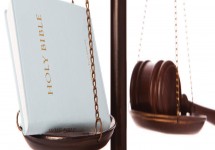‘Mr’ or ‘Rev’ Slipper – Politician or Priest or Both
 Peter Slipper has become a controversial figure in Australian politics. Today I do not want to dwell on whether or not he missed used cab charges or whether or not he sexually harassed a staff member. I also don’t want to look at whether he should continue to fulfil the role of Speaker of the House. Rather today I want to focus on his role with in the Traditional Anglican Communion.
Peter Slipper has become a controversial figure in Australian politics. Today I do not want to dwell on whether or not he missed used cab charges or whether or not he sexually harassed a staff member. I also don’t want to look at whether he should continue to fulfil the role of Speaker of the House. Rather today I want to focus on his role with in the Traditional Anglican Communion.
The Traditional Anglican Communion is a breakaway group from Anglican Church (Also known as the Church of England). According to news reports Peter Slipper is not only a member of this church he is an ordained one and holds the important office of Chancellor. In response to the allegations made against Mr Slipper the Archbishop of the Traditional Anglican Communion has come out in support of Mr Slipper but at the same time has called for him to step down from his church roles until the matter is resolved. This saga raises some important issues.
If, as news reports suggest, Mr Slipper is in fact an ordained member of the Traditional Anglican Church he has been very quiet about it. He is always referred to both by the media and his political colleagues as ‘Mr’ rather than “Reverend’ – which if he is ordained may be more accurate. Which Raises the first issue. If a politician is also an ordained member of a religious organisation (or in a leadership role for those religions that do not ‘ordain their leadership) should this be revealed and made obvious. I am not suggested that Mr Slipper has been trying to hide the fact he is an ordained priest. Rather I am saying it is not something he has advertised. Other ordained members of parliaments in Australia, such as Rev. Fred Nile, do use the term Reverend in their political life, although I suspect there are others who don’t. Related to this is the thorny question of whether or not ordained members of religious organisations should serve in the parliament at all.
Australia has a long history of religious leaders also being political ones. In the early colony the first two chaplains Rev. Richard Johnson and Samuel Marsden could often be better described as government officials than religious ministers. Amongst the first elected members of ‘parliament’ in the early colony was the Reverend John Dunmore Lang – a Presbyterian minister. I am sure you can all think of many other both historical and modern examples. Despite this long history the legitimacy of such people sitting in parliament has been raised from time to time. The question being how they can faithfully serve two masters – the church that ordained them and the people that elected them.
For my own part I have no problem with ordained members of a religious organisation running for and sitting in parliament on two conditions. First they disclose that they are an ordained member of a religious organisation so their voters can properly asses them as a candidate. Second that they are prepared to acknowledge that sometimes there may be conflict in their dual roles and act accordingly.
